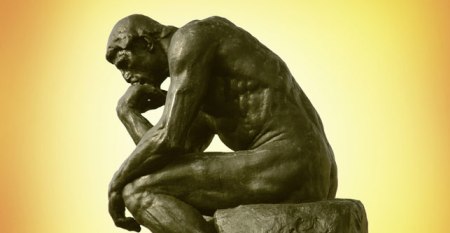Critical thinking skills are not a luxury for senior executives – they’re a survival skill. In today’s hi-tech business world we have become reliant on any number of available business tools to help us achieve better results and to perform at higher levels. We attend classes, workshops, webcasts, conferences etc., and we read books on how to master everything from the newest software application to the latest management theory. We seem to have an insatiable thirst for anything that will provide us with a perceived competitive advantage, yet we often ignore the one tool which can provide an unequaled return on investment if developed to even a fraction of its potential…the human mind. In today’s post I’ll examine the virtually unlimited benefits of becoming a better critical thinker.
Most professionals intellectually understand that learning is a life-long endeavor, but the reality is that many executives and entrepreneurs invest very little in the development of the human mind once they have finished their formal education.
Given that the human mind is without question the greatest and most powerful tool we possess, and that we all have free and equal access to it, I find it odd that it is also the most underdeveloped tool for many professionals. It has been my experience that business people tend to overestimate their intellectual ability, and as a result, they often fail to make investments in endeavors of intellectual development.
Developing sound critical thinking skills are a requirement for CEOs and entrepreneurs. Being both quick of mind, and intelligent in approach to your mental analyses of a given situation simply results in fewer mistakes in judgment. The external perception with regard to a person who possesses excellent critical thinking skills is often that they have great wisdom and discernment. Critical thinking skills while related to intelligence, are not one in the same. A great critical thinker may or may not be the sharpest tool in the shed, but they will have a disciplined, fluid approach in thinking things through that often gives them the appearance of being a genius. Strong mental acuity is a competitive advantage not to be taken lightly.
Paul, Binker, Jensen, and Kreklau (1990) developed a list of 35 dimensions of critical thought. While the following list can get a bit academic, if implemented consistently, these tactics will help you better navigate the complexities of the business world:
Affective Strategies
- thinking independently
- developing insight into egocentricity or sociocentricity
- exercising fair-mindedness
- exploring thoughts underlying feelings and feelings underlying thoughts
- developing intellectual humility and suspending judgment
- developing intellectual courage
- developing intellectual good faith or integrity
- developing intellectual perseverance
- developing confidence in reason
Cognitive Strategies–Macro-Abilities
10. refining generalizations and avoiding oversimplifications
11. comparing analogous situations: transferring insights to new contexts
12. developing one’s perspective: creating or exploring beliefs, arguments, or theories
13. clarifying issues, conclusions, or beliefs
14. clarifying and analyzing the meanings of words or phrases
15. developing criteria for evaluation: clarifying values and standards
16. evaluating the credibility of sources of information
17. questioning deeply: raising and pursuing root or significant questions
18. analyzing or evaluating arguments, interpretations, beliefs, or theories
19. generating or assessing solutions
20. analyzing or evaluating actions or policies
21. reading critically: clarifying or critiquing texts
22. listening critically: the art of silent dialogue
23. making interdisciplinary connections
24. practicing Socratic discussion: clarifying and questioning beliefs, theories, or perspectives
25. reasoning dialogically: comparing perspectives, interpretations, or theories
26. reasoning dialectically: evaluating perspectives, interpretations, or theories
Cognitive Strategies–Micro-Skills
27. comparing and contrasting ideals with actual practice
28. thinking precisely about thinking: using critical vocabulary
29. noting significant similarities and differences
30. examining or evaluating assumptions
31. distinguishing relevant from irrelevant facts
32. making plausible inferences, predictions, or interpretations
33. evaluating evidence and alleged facts
34. recognizing contradictions
35. exploring implications and consequences”
If you want to do everything possible to ensure your success as a C-level executive or entrepreneur, don’t rest upon your laurels, but rather continue to make investments in your personal and professional development. Good luck and good thinking…







